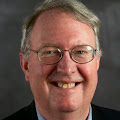
Forever Free: Abraham Lincoln's Journey to Emancipation exhibit is now installed in the Jackson Library Reading Room at UNC Greensboro. I hope you will enjoy it.
From January 25 through March 5, the University Libraries plays host to a very special exhibit: "Forever Free: Abraham Lincoln's Journey to Emancipation." The exhibit, which fills a wall of the Jackson Library Reading Room, explores Lincoln’s gradual transformation from an antislavery moderate into “The Great Emancipator." In conjunction with the exhibit, the University Libraries are bringing several speakers to campus, with more in February and early March, and our partners at the Greensboro Historical Museum and Greensboro Public Library also have events scheduled to coincide with the exhibit.
Next week's Forever Free program events:
Tuesday, January 26 - Dr. Loren Schweninger, UNCG History Department, "Frederick Douglass, Abraham Lincoln and the End of Slavery." at 7:00 pm in the Virginia Dare Room, Alumni House, UNCG Campus. Free.
Wednesday, January 27 -Former Senator George McGovern will sign copies of his 2009 book, Abraham Lincoln, and discuss what drew him to the subject. Reception immediately following. 3:30 pm in Jackson Library Reading Room, UNCG Campus. Senator McGovern will also speak that evening at 7 pm at the premiere screening of UNCG Professor Matt Barr's film, Hungry for Green: Feeding the World Sustainably, which McGovern narrates. The screening will be held in the Elliott University Center Auditorium. Both events are free.
Sunday, January 31 --Former Museum Director Bill Moore will speak on "The Assassination of Abraham Lincoln: The Greensboro Connection" at the Greensboro Historical Museum at 3:00 p.m.
From January 25 through March 5, the University Libraries plays host to a very special exhibit: "Forever Free: Abraham Lincoln's Journey to Emancipation." The exhibit, which fills a wall of the Jackson Library Reading Room, explores Lincoln’s gradual transformation from an antislavery moderate into “The Great Emancipator." In conjunction with the exhibit, the University Libraries are bringing several speakers to campus, with more in February and early March, and our partners at the Greensboro Historical Museum and Greensboro Public Library also have events scheduled to coincide with the exhibit.
Next week's Forever Free program events:
Tuesday, January 26 - Dr. Loren Schweninger, UNCG History Department, "Frederick Douglass, Abraham Lincoln and the End of Slavery." at 7:00 pm in the Virginia Dare Room, Alumni House, UNCG Campus. Free.
Wednesday, January 27 -Former Senator George McGovern will sign copies of his 2009 book, Abraham Lincoln, and discuss what drew him to the subject. Reception immediately following. 3:30 pm in Jackson Library Reading Room, UNCG Campus. Senator McGovern will also speak that evening at 7 pm at the premiere screening of UNCG Professor Matt Barr's film, Hungry for Green: Feeding the World Sustainably, which McGovern narrates. The screening will be held in the Elliott University Center Auditorium. Both events are free.
Sunday, January 31 --Former Museum Director Bill Moore will speak on "The Assassination of Abraham Lincoln: The Greensboro Connection" at the Greensboro Historical Museum at 3:00 p.m.
Organized by the Huntington Library, San Marino, Calif., and the Gilder Lehrman Institute of American History, New York City, in cooperation with the American Library Association (ALA), this traveling exhibition is made possible through major grants from the National Endowment for the Humanities (NEH) and the Abraham Lincoln Bicentennial Commission, created by Congress and charged with planning the national celebration of Lincoln’s 200th birthday.
Locally, this project is made possible in part by a grant from the North Carolina Humanities Council, a statewide nonprofit and affiliate of the National Endowment for the Humanities, and through the support of the Friends of the UNCG Libraries, the N.C. Civil War Roundtable and the UNCG History Club.

Comments
Post a Comment